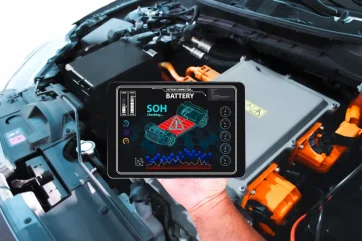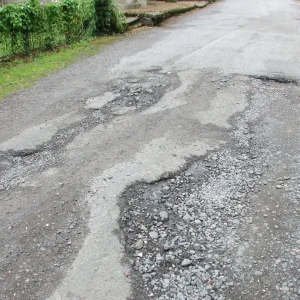
Data indicating that EV batteries will now last for 20 years or more has been published by Geotab.
The telematics firm said it had analysed the battery health of almost 5,000 fleet and private EVs, representing nearly 1.5 million days of telematics data, and found that batteries were degrading by 1.8% per year.
This figure represents an improvement compared with the 2.3% degradation Geotab found through similar research in 2019. The company also said it represented a slower degradation rate than that seen with petrol or diesel drivetrain components.
Geotab UK and Ireland vice president David Savage said: “With these higher levels of sustained health, batteries in the latest EV models will comfortably outlast the usable life of the vehicle and will likely not need to be replaced.
“However, we still see battery reliability being used as a stick to beat EVs with. Hopefully, data like ours can finally put these myths to bed.
“The fact is that a 1.8% decline in battery health is unlikely to have a significant impact on most driver’s daily vehicle needs, and this number will only come down further with new EV models and improved battery technology.
“People should feel confident that many current EVs are suitable and cost-effective to replace a range of light, medium and heavy-duty ICE vehicles.”
Geotab said the best-performing vehicles in its analysis recorded degradation rates of only 1%, with potential reasons including battery chemistry and thermal management of the battery pack.
It also found that high-use EVs did not show significantly higher degradation than others.





